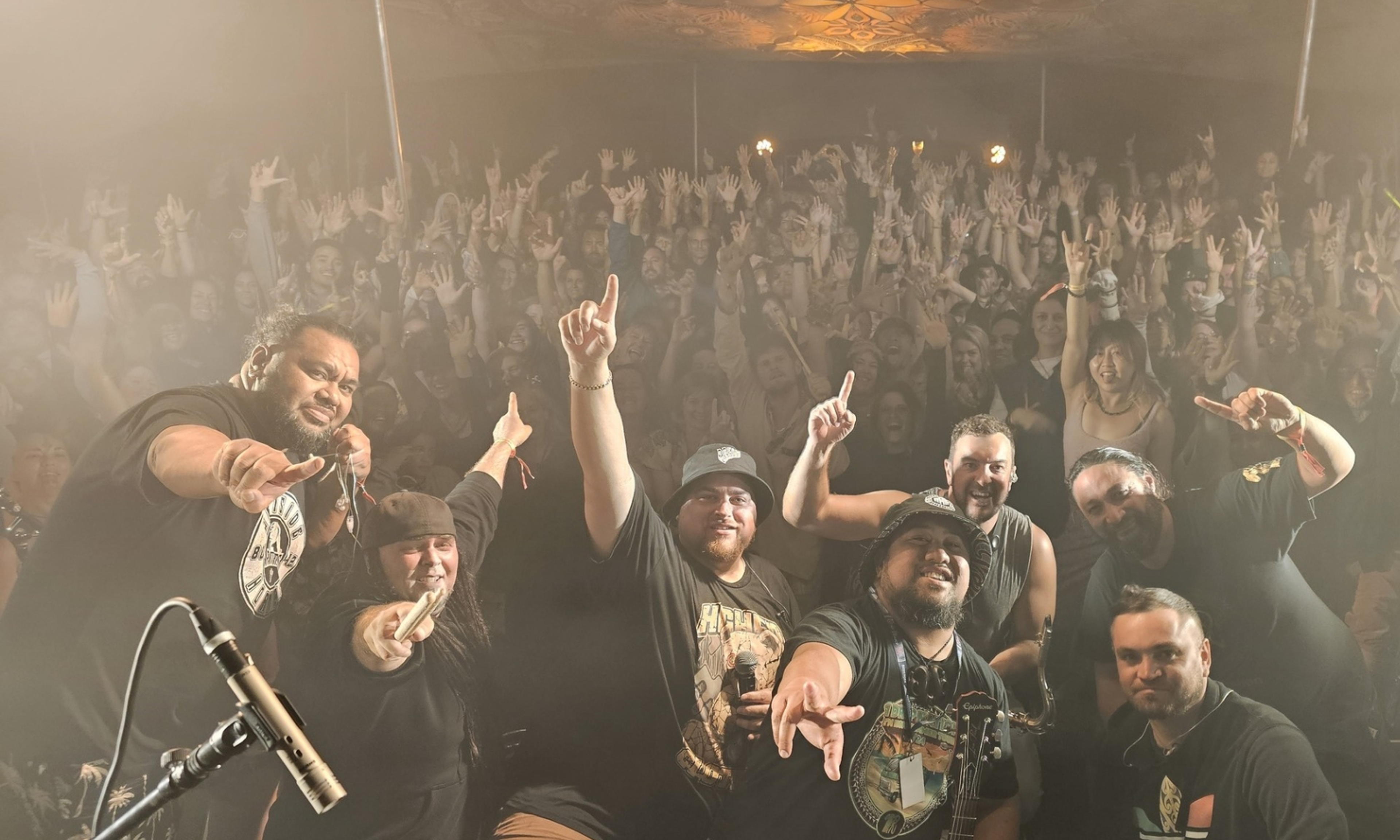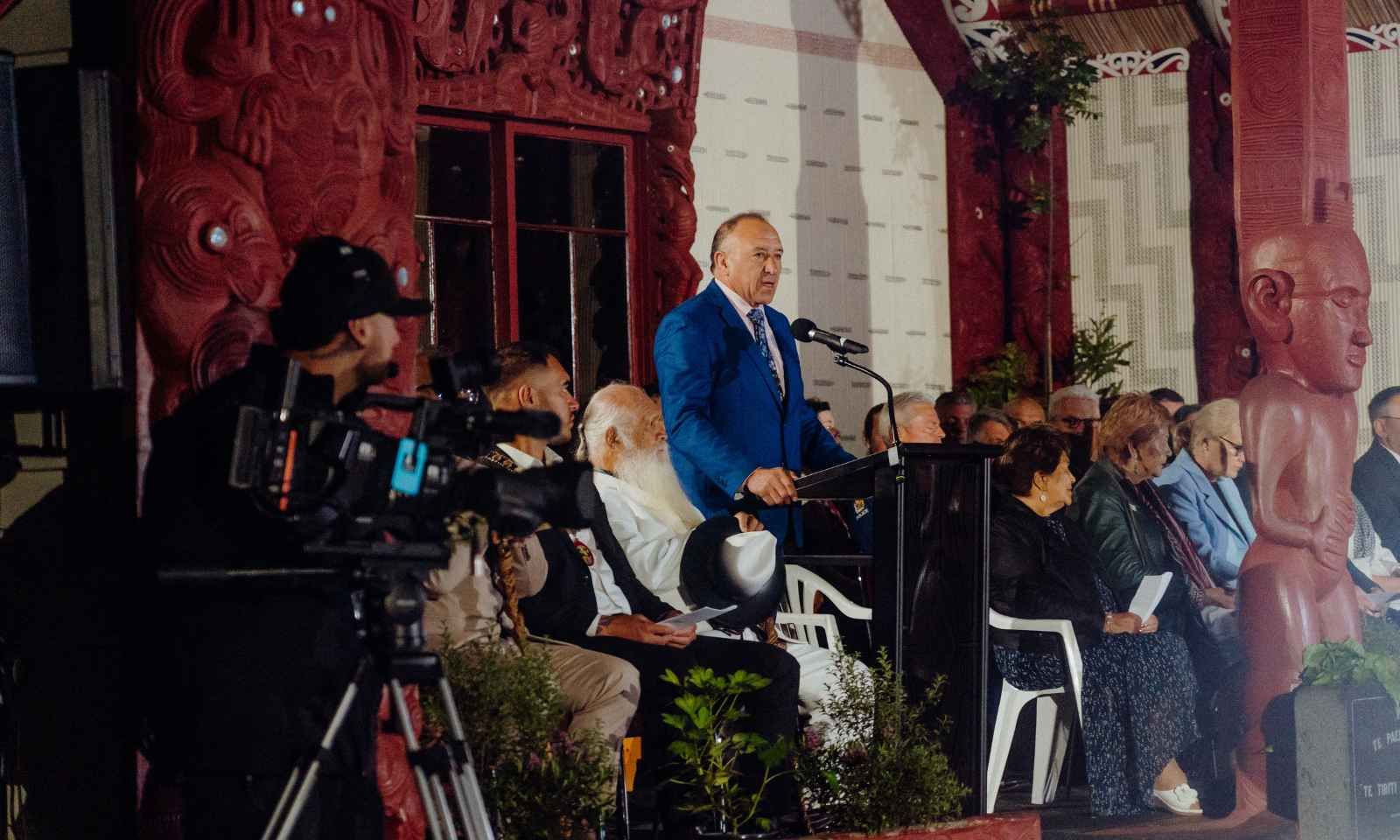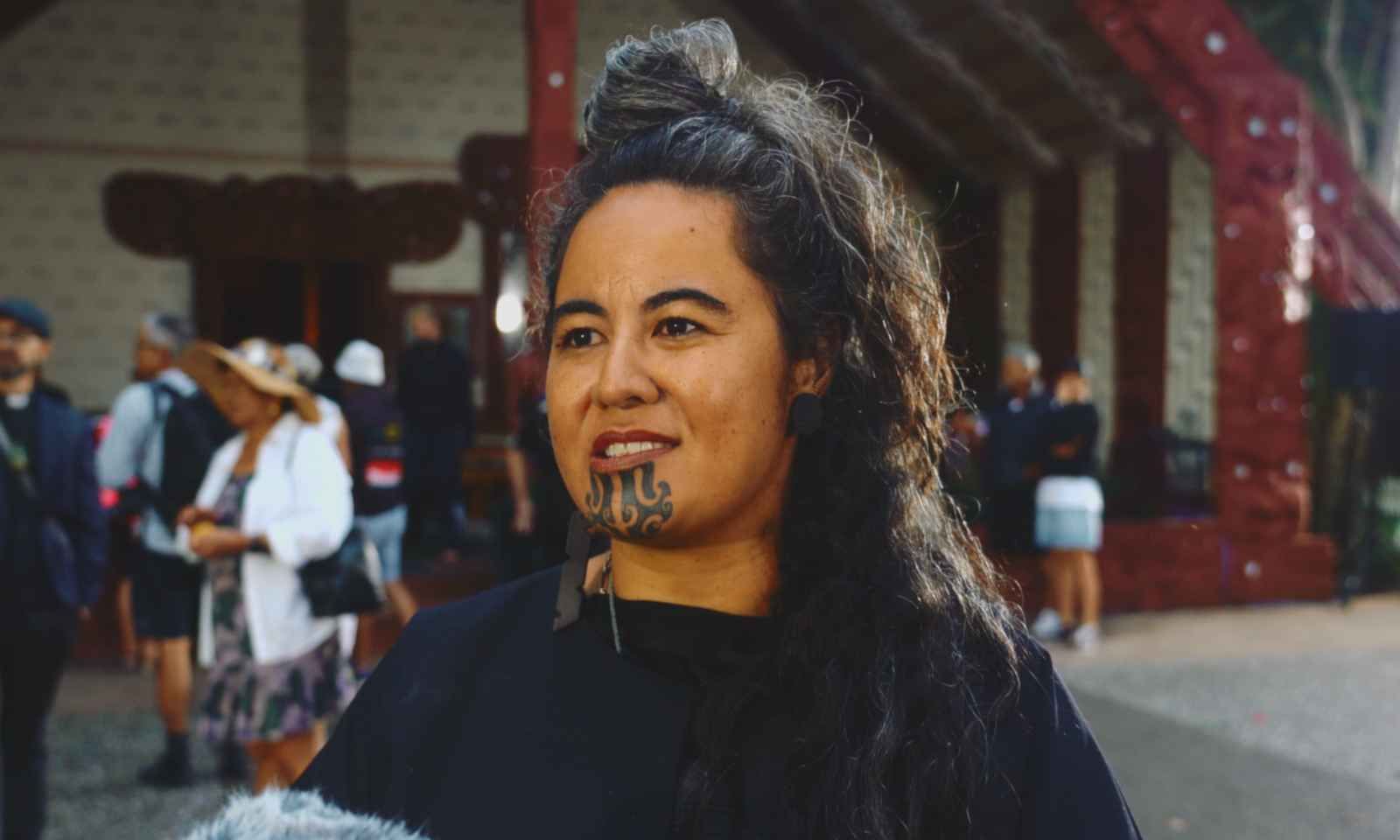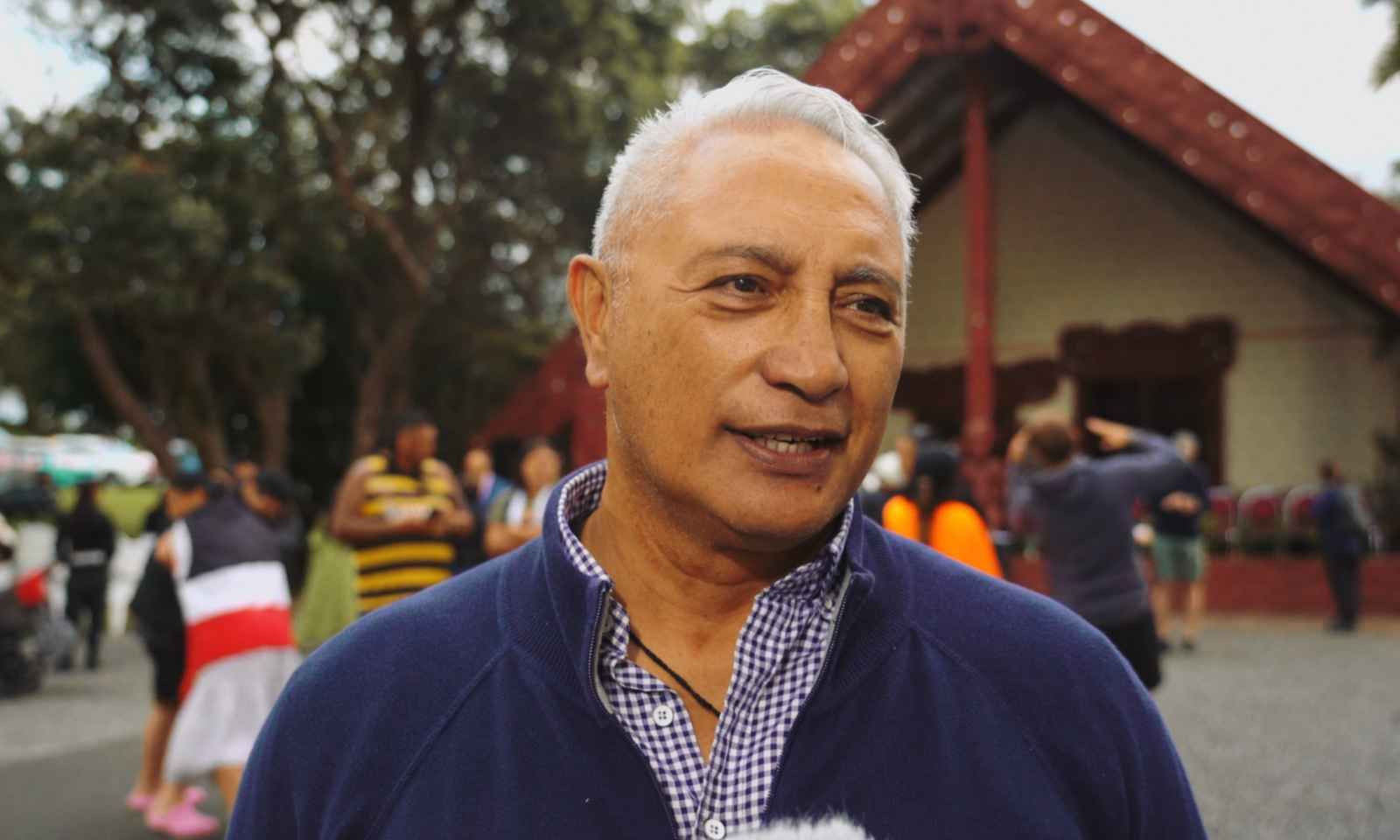

Hundreds gather at Treaty Grounds for the annual Waitangi Day dawn service.
Photo/Joseph Safiti
Waitangi dawn service calls for reflection and commitment to Te Tiriti
As the service brought people together, there were calls for a deeper commitment to The Treaty of Waitangi.



Ōtautahi's 1 Drop Nation celebrates brotherhood and legacy in new music




Lineup for Miss Pacific almost complete after Fiji, PNG crown queens

Ōtautahi's 1 Drop Nation celebrates brotherhood and legacy in new music


A sense of history and responsibility marked this year's Waitangi commemorations, with political tensions surrounding Te Tiriti remaining at the forefront of national discourse.
Amid the ongoing debates over the Treaty Principles Bill, voices from across the political and social spectrum gathered at Waitangi to reflect on Te Tiriti's significance.
Hundreds gathered at Waitangi Treaty Grounds for the annual Waitangi Day dawn service.
A dawn of reflection and unity
Waitangi National Trust chairman Pita Tipene opened the ceremony with a whakatau (welcome).
Northland bishop Reverend Te Kitohi Pikaahu and Reverend Tamiana Thrupp from the Māori Synod of the Presbyterian Church led the prayers.
Various church leaders, including Reverend Rose Luxford of the Presbyterian Church and Reverend Tara Tautari of the New Zealand Methodist Church, made statements highlighting Te Tiriti's significance and its role in present-day Aotearoa.
Political frictions at Waitangi
While the dawn service provided a moment of unity and reflection, political tensions flared the previous day during the parliamentary pōwhiri.
ACT leader David Seymour faced vocal opposition during his speech, with protesters turning their backs on him and his microphone being taken twice.

Waitangi National Trust chairman Pita Tipene. Photo/Joseph Safiti
New Zealand First Minister Shane Jones condemned the disruptions, describing the pōwhiri as a “circus” and questioning whether future government funding for the Waitangi National Trust should continue.
A living commitment to Te Tiriti
Julia Whaipooti, the Human Rights Commission's tino rangatiratanga leader, reflected on the dawn service, saying that the spirit of Waitangi remains strong despite political contention.
She described the gathering as a beautiful moment of unity, with tangata whenua and non-Māori alike coming together to acknowledge Te Tiriti's promises and the ongoing work required to fulfill them.
“A lot of the korero that happened this morning reflected that as well, to say there were a lot of promises made yet to be fulfilled, but that we can't forget the intention that was made when Te Tiriti was signed.”
Whaipooti highlighted that most New Zealanders recognise the importance of Te Tiriti, referencing a recent Human Rights Commission survey that found 90 per cent of New Zealanders acknowledge its significance in fostering belonging.
She said four out of five New Zealanders want respectful discussions on Te Tiriti despite the divisiveness sometimes seen in political discourse.
Watch a snippet from the Waitangi Day dawn service.
“People see it as something that's alive and living, and actually, the majority of New Zealanders see it for what it is, which is a foundation of our country, and I think that can get lost in the politics of it all, but it's not something political, it's actually part of the heartbeat of Aotearoa.”
Political debate v public sentiment
Whaipooti also challenged the notion that opposition to the Treaty Principles Bill comes from a select few.
“I think that it's not a reflection of New Zealand and being here at Waitangi you have hundreds of children here, hundreds of people here, tangata moana, pākehā, Asian whānau, there's lots of people here who have gathered because we support Titiriti.
“It's a real festival and whānau gathering and vibe, and I think that the politics of it all is not a true reflection, but it's the loudest noise, but the truth of it all sits with the people.
“Every day I feel a responsibility to make sure we live in joy and we don't forget to give life to Te Tiriti because it's not just a piece of paper.
“It is a promise of being connected, being together, sharing kai, sharing korero, and even where there's spaces of disagreement, that we have a foundation of values, that we have a responsibility as pakeke (grown-ups) to give life to, and so I feel quite committed to that.”

Julia Whaipooti, the Human Rights Commission's tino rangatiratanga leader. Photo/Joseph Safiti
A former minister’s perspective
Former National MP and government minister, Alfred Ngaro, reflected on the changing nature of Waitangi commemorations.
He expressed disappointment following Seymour and Jones’ treatment, emphasising that Waitangi should remain a space for discussion.
“I know that some of the older people, the kaumatua I talked to said that they're disappointed in the way that people were treated, especially when it's disrespectful,” Ngaro said.
“This place has been set aside as a taumata (platform) where people can come and talk, and that's where the debate happens. So I just believe that there are other ways.”
Ngaro criticised Prime Minister Christopher Luxon’s absence from this year’s Waitangi events, describing it as a missed opportunity to engage directly with the challenges and conversations taking place.
“I know that people like Helen Clark and others have had, you know, Prime Ministers have had some difficult times up here. It's one of those contentious places,” he said.

Former National MP and government minister, Alfred Ngaro. Photo/Joseph Safiti
“But you can't run away from the contention, you can't run away from that challenge that is there.
“You have to run to it, stand in it, and begin to sort of contend with what these issues are. So I think that actually coming here is really important, and in my view, you should be present.”
A nation at a crossroads
Seymour insisted he would return next year despite facing backlash, and Whaipooti emphasised that discussions surrounding Te Tiriti are far from over.
“It's a reminder that we're not going anywhere. Te Tiriti is not going anywhere.
“The korero that might happen in Paremata (parliament) in Wellington, it's not going anywhere.
“And as long as people continue together here, not just here on Waitangi, about all day every day, as I would like to say, but yeah, we're not going anywhere.”

Many turned their backs during David Seymour's speech at the parliamentarians' pōwhiri. Photo/Joseph Safiti
Ngaro shared a similar view. “I don't agree with it [the Treaty Principles bill].
“I think it's really clear that while it has the pretence and supposedly the intentions of trying to do good, number one, it's not going anywhere because many people see that actually, it's a wrong approach to it, trying to define what those principles are.
“It's very clear the Waitangi Tribunal that was set up in 1975 was to provide a statutory role of responsibility to advise the government.
“People know their principles. So, I don't agree with the Bill. I think there's a better way of being able to do that, and at the moment, I think it would only divide a nation and its people and we don't need that.”